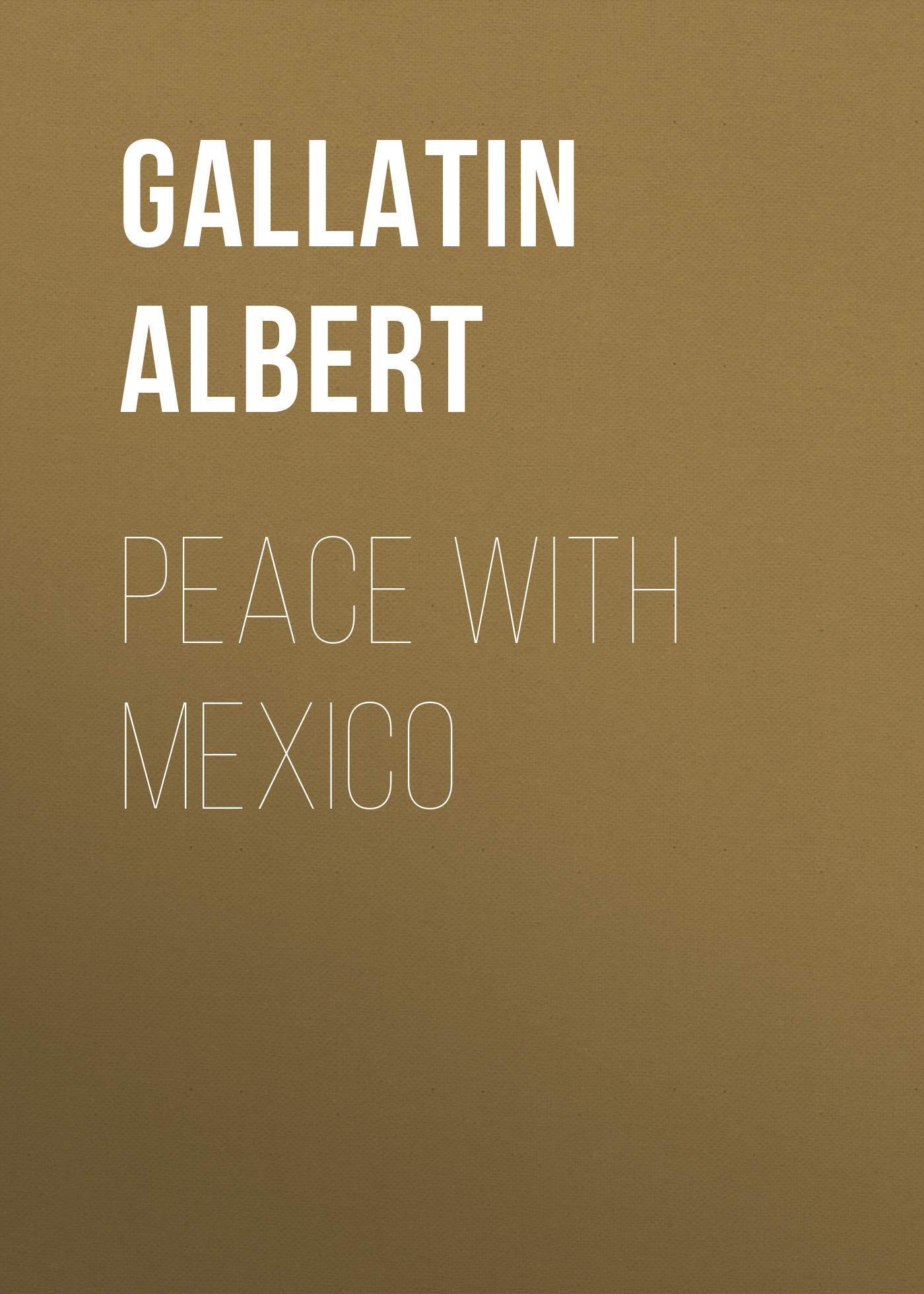Электронная книга: Gallatin Albert «Peace with Mexico»

|
Издательство: "Public Domain"
электронная книга Скачать бесплатно на Litres |
Другие книги автора:
| Книга | Описание | Год | Цена | Тип книги |
|---|---|---|---|---|
| Expenses of the war | Книга представляет собой репринтное издание. Несмотря на то, что была проведена серьезная работа по… — Книга по Требованию, - Подробнее... | бумажная книга | ||
| Considerations On the Currency and Banking System of the United States | Книга представляет собой репринтное издание. Несмотря на то, что была проведена серьезная работа по… — Книга по Требованию, - Подробнее... | бумажная книга | ||
| Views of the public debt, receipts,&expenditures of the United states | Книга представляет собой репринтное издание. Несмотря на то, что была проведена серьезная работа по… — Книга по Требованию, - Подробнее... | бумажная книга | ||
| Peace with Mexico | Книга представляет собой репринтное издание. Несмотря на то, что была проведена серьезная работа по… — Книга по Требованию, - Подробнее... | бумажная книга | ||
| The Writings of Albert Gallatin, Volume 3 | Книга представляет собой репринтное издание. Несмотря на то, что была проведена серьезная работа по… — Книга по Требованию, - Подробнее... | бумажная книга | ||
| The Oregon Question | Книга представляет собой репринтное издание. Несмотря на то, что была проведена серьезная работа по… — Книга по Требованию, - Подробнее... | бумажная книга | ||
| The Oregon Question | — Public Domain, электронная книга Подробнее... | электронная книга |
Gallatin, Albert
* * *
Источник: Gallatin, Albert
См. также в других словарях:
Unjust War with Mexico — ▪ Primary Source By 1847 Albert Gallatin s long and distinguished career of public service as a congressman, cabinet member, and diplomat was behind him. Most of those with whom he had worked and sometimes fought were dead, and at age 86 he … Universalium
Treaty with Mexico — ▪ Primary Source The treaty which closed the Mexican American War was negotiated on the part of the United States by Nicholas Trist, who, previous to his appointment as commissioner and confidential agent, had been chief clerk of the… … Universalium
Mexico — • Situated at the extreme point of the North American continent, bounded on the north by the United States, on the east by the Gulf of Mexico, the Caribbean Sea, British Honduras, and Guatemala, and on the south and west by the Pacific Ocean… … Catholic encyclopedia
Peace Congresses — • Meetings of representatives of different nations to obtain a peaceful settlement of differences Catholic Encyclopedia. Kevin Knight. 2006. Peace Congresses Peace Congresses … Catholic encyclopedia
Mexico — /mek si koh /, n. 1. a republic in S North America. 97,563,374; 761,530 sq. mi. (1,972,363 sq. km). Cap.: Mexico City. 2. a state in central Mexico. 6,245,000; 8268 sq. mi. (21,415 sq. km). Cap.: Toluca. 3. Gulf of, Mexican, Golfo de México /gawl … Universalium
Peace congress — A peace congress, in international relations, has at times been defined in a way that would distinguish it from a peace conference (usually defined as a diplomatic meeting to decide on a peace treaty), as an ambitious forum to carry out dispute… … Wikipedia
